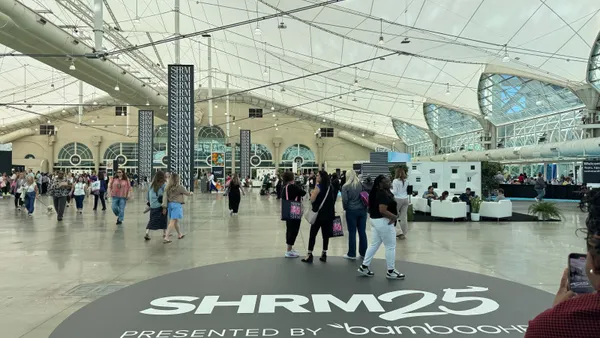Dive Brief:
- A vice president of HR fired for a pro-Trump tweet has no defamation claim, a federal district court ruled in Jungclaus v. Waverly Heights, Ltd., No. 17-4462 (E.D.Pa., April 9, 2018).
- Kathleen Jungclaus, who worked for senior care facility Waverly Heights, was fired after tweeting “ I am the VP of HR in a comp[any] outside of Philly[. A]n informal survey of our employees shows 100% AA employees Voting Trump!” She was fired and then sued, alleging defamation in violation of state law, among other things. Jungclaus' claim centered on the fact that the company’s CEO told her, “I don’t want you to think that we think you are a racist. That’s not the case." She also took issue with the company telling others she was fired for violating its social media policy.
- The court, however, said that while allegations of racism would be disparaging and could adversely affect her ability to work in human resources, her claim failed because she failed to identify a “single instance of anyone calling her a racist or saying that she was fired for being a racist.” Violating a social media policy does not reach the level of alleged misconduct needed to sustain a claim of defamation in her situation, the court said. It also noted it was “perplexed” by Jungclaus’ theory that her tweet could imply that she is a racist: "Ms. Jungclaus appears to be implying that by sending a 'pro-Trump' tweet, she is perceived as a racist. Ms. Jungclaus offers no explanation for why she believes that a 'pro-Trump' tweet would equate to an act of racism."
Dive Insight:
While it's not exactly clear how Jungclaus violated her employer's social media policy, it's worth noting that, in the private sector and in many states, employees can be fired for political activities, even affiliations. There’s perfectly good legal precedent, for example, for firing an employee for certain behaviors even if they're undertaken during off-work hours, Jon Hyman, a partner with Meyers Roman Friedberg and Lewis previously told HR Dive for an article addressing the 2017 white nationalist march in Charlottesville.
In the age of Twitter, Facebook and Instagram, the walls of the workplace are now greatly extended. Social media conversations are not private. People share scores of details about themselves publicly every day, and the line between what employers can and should look at and what they can ignore has all but disappeared, Hyman said.
Of course, there are some protections. Some states have created some off-duty conduct protections, and employees in the public sector enjoy more speech and political protections than those who work for private companies. Finally, it's important to remember that contracts and collective bargaining agreements can apply, and that speech about working conditions or discrimination, even if related to politics, can be protected.












